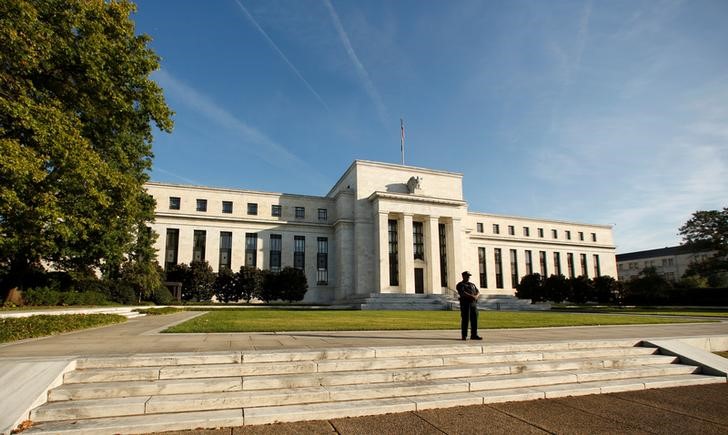By Marius Zaharia
HONG KONG (Reuters) - As the Federal Reserve signals an end to its decade of unconventional monetary stimulus, divergence between the policies of the U.S. and Asian central banks is growing, a stark contrast to an era when regional rate moves closely tracked the United States.
The Fed on Wednesday said it would begin to reduce its $4.2 trillion in holdings of Treasuries and mortgage-backed securities in October, bought in response to the 2008-09 financial crisis. When the Fed first hinted at this move in 2014, central banks in Indonesia and India followed up with rate hikes.
But on Thursday, policymakers in Japan, Philippines and Taiwan held interest rates steady. Indonesia is seen doing just that on Friday with some analysts even calling an outside chance of another cut there after last month's surprise easing.
Stable current account positions in Asia mean policymakers in the region are less concerned about sudden capital flight than they previously were, which has allowed them to focus their policies on economic fundamentals rather than competition for global capital.
"There are many structural drivers holding down inflation around the world and we see a benign inflation outlook across Asia. This should keep a friendly monetary policy tone for markets," said Fan Cheuk Wan, head of investment strategy and advisory for Asia at HSBC Private Banking.
"We expect Asian central banks to remain accommodative."
While Asian shares on Thursday fell after the Fed's meeting, there were no signs of major financial market shocks.
Central banks in developed markets, mainly in the West, have turned more hawkish this year as their economies picked up steam. But stimulus withdrawal in these countries is likely to be gradual and sensitive to economic data and market fluctuations, which would support risk appetite.
Strong export growth and stable currencies in Asia have attracted funds into the region's asset markets, which means policymakers have not felt pressure to keep capital onshore through higher interest rates.
As a result, Asian central banks are not expected to mirror the Fed rate cycle as closely as in the past. Like Indonesia, India is also seen as potentially cutting rates in coming months.
'NO AUTOMATIC IMPLICATIONS'
In Japan, the central bank's new board member, Goushi Kataoka, surprisingly voted against the decision to keep interest rate targets unchanged, arguing the current easing steps were not enough to hit the inflation goal. Bank of Japan Governor Haruhiko Kuroda responded by saying U.S. interest rates rises did not demand Japan follows suit.
Both the Philippine and Taiwan central banks kept their benchmark rates unchanged with their respective inflation projections showing no meaningful pickup in expected price pressures.
In Australia, central bank governor Philip Lowe said interest rates were more likely to go up than down but would stay at record lows for some time as inflation remained weak. Lowe added there were no "automatic implications" from global rate hikes.
Markets <0#YIB:> see Australia hiking in June.
In Indonesia, 20 out of 26 analysts polled by Reuters predicted the central bank will hold rates at 4.50 percent at its policy meeting on Friday, while the other six saw another 25 basis point cut. Last month, Bank Indonesia (BI) became the second major Asian central bank to cut rates this year after India.
Southeast Asia's largest economy was the only one in the region where second-quarter growth failed to beat expectations. Its predominantly consumption driven economy has struggled to track the export boom seen in neighboring countries and its inflation is seen trending to the lower end of the central bank's 3-5 percent target.
"BI is poised to follow through with another rate cut in the fourth quarter as inflation continues to ease," ING senior economist Joey Cuyegkeng said.

HSBC's Fan expects a cut in the second quarter next year.